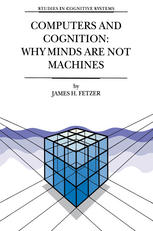

Most ebook files are in PDF format, so you can easily read them using various software such as Foxit Reader or directly on the Google Chrome browser.
Some ebook files are released by publishers in other formats such as .awz, .mobi, .epub, .fb2, etc. You may need to install specific software to read these formats on mobile/PC, such as Calibre.
Please read the tutorial at this link: https://ebookbell.com/faq
We offer FREE conversion to the popular formats you request; however, this may take some time. Therefore, right after payment, please email us, and we will try to provide the service as quickly as possible.
For some exceptional file formats or broken links (if any), please refrain from opening any disputes. Instead, email us first, and we will try to assist within a maximum of 6 hours.
EbookBell Team

5.0
28 reviewsAn important collection of studies providing a fresh and original perspective on the nature of mind, including thoughtful and detailed arguments that explain why the prevailing paradigm - the computational conception of language and mentality - can no longer be sustained. An alternative approach is advanced, inspired by the work of Charles S. Peirce, according to which minds are sign-using (or `semiotic') systems, which in turn generates distinctions between different kinds of minds and overcomes problems that burden more familiar alternatives. Unlike conceptions of minds as machines, this novel approach has obvious evolutionary implications, where differences in semiotic abilities tend to distinguish the species. From this point of view, the scope and limits of computer and AI systems can be more adequately appraised and alternative accounts of consciousness and cognition can be more thoroughly criticised.
Readership: Intermediate and advanced students of computer science, AI, cognitive science, and all students of the philosophy of the mind.